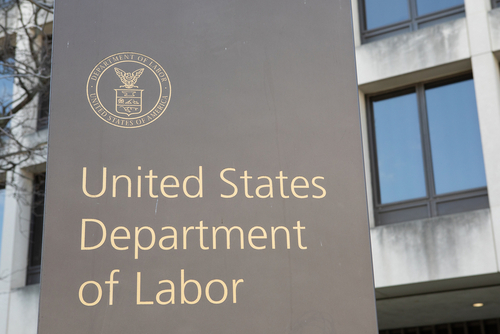The Office of Management and Budget (OMB) received the fiduciary rule, listed as Retirement Security Rule: Definition of an Investment Advice Fiduciary, from the Department of Labor (DOL) on Friday.
The OMB will review its costs and benefits within 90 days. However, the compressed two-month period in which the DOL finalized the rule has industry watchers predicting that the OMB will also move quickly in its review.
“While the OMB has up to 90 days to review rules, the speed with which the DOL finished the regulation and exemptions suggests that this is on a fast track,” ERISA expert and Fagre Drinker Partner Fred Reish said. “That could mean the final rules will be approved within 30 to 60 days.”
The rulemaking package was published in the Federal Register on Nov. 3, 2023. The DOL allowed comments for just 60 days and denied several requests to extend the period.
It would amend the regulatory definition of the term fiduciary to “more appropriately define” when persons who render investment advice for a fee to employee benefit plans and IRAs are fiduciaries within the meaning of section 3(21) of ERISA and section 4975(e)(3) of the Internal Revenue Code.
EBSA also proposed amendments to existing PTEs to ensure what it describes as “consistent protection of employee benefit plan and IRA investors.”
Yet how the final rule differs from the proposed rule is yet to be seen.
“While we know that the final rule is at the OMB, we don’t know what it says or how it changed from the proposals,” Reish said. “We will only know that after it is published in the Federal Register when the OMB review is completed.”
He also noted the rule and exemption will become effective 60 days after they’re published in the Federal Register but added “effective” isn’t necessarily the same as “applicable,” and the rules will likely be applicable no earlier than Jan. 1, 2024.
The proposed rule included a requirement that 401(k) plan-level protection extend to small business owners and participants, something the American Retirement Association ARA strongly advocated for and CEO Brian Graff testified about before the DOL in December.
Graff explained that small business retirement plans are often sold and not bought due to business owner time constraints, there is no ongoing advice relationship, “and the ‘regular basis’ prong of the 1975 five-part test is not satisfied.”
He also noted that the SEC’s Regulation Best Interest (Reg BI) and the NAIC’s Model Rule cover individual investors, not those in retirement plans, resulting in a regulatory gap the DOL’s proposed Retirement Security Rule would close.
The DOL issued its current ERISA definition of “fiduciary investment advice” in 1975. At the time, defined benefit plans were prevalent, and 401(k) plans didn’t exist.
Supporters say an updated definition is needed now that 401(k) plans dominate the retirement plan market. Opponents call the rule misguided, a solution in search of a problem, and believe it goes beyond its legal authority.

